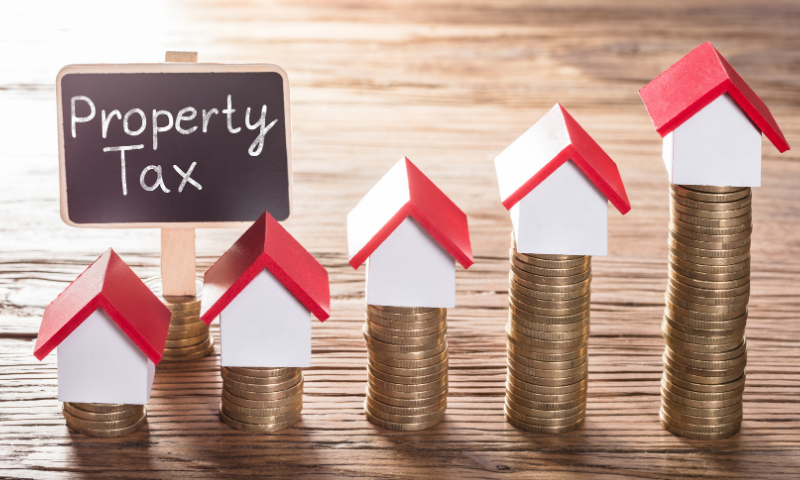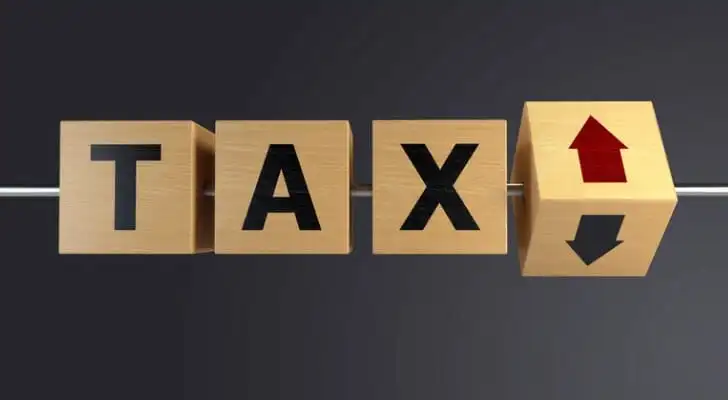How to Calculate Boston Massachusetts Condo Taxes: A Step-by-Step Guide
Boston Condos for Sale and Rent
Loading...
How to Calculate Boston Massachusetts Condo Taxes: A Step-by-Step Guide
Navigating the labyrinth of property taxes can be complex, particularly in Boston, Massachusetts where condos are a dominant part of the real estate landscape. Indeed, understanding how these taxes are calculated is crucial to make the most sensible financial decisions. So, whether you’re considering buying a chic condo in Beacon Hill or selling your trendy Seaport District loft apartment, knowing your tax obligations is key. Fear not! This step-by-step guide will unfold the intricacies of Boston’s condo tax calculation, transforming this seemingly daunting task into an effortless pursuit.
Condo taxes in Boston, Massachusetts are calculated based on the assessed value of the property and the local tax rate. To calculate the residential annual tax rate, multiply the assessed value of the property by 0.01056. If eligible, subtract $2,880 from the calculated value if claiming a residential exemption. Additionally, some condo buildings may have varying changes in value for each unit despite similar details such as number of bedrooms and bathrooms. It’s important to note that assessments may not reflect recent changes due to market conditions or other fluctuations, so it’s recommended that homeowners consult with their local assessors’ office for accurate information.

Boston Condo Tax Determinants
When it comes to calculating condo taxes in Boston, several key determinants come into play. These determinants serve as the basis for assessing the value of your condo and subsequently calculating the property tax you owe. By understanding these factors, you can have a clearer picture of how your taxes are calculated and potentially identify areas where you could take action to reduce your tax burden.
One of the primary determinants is the location of your condo. Different neighborhoods in Boston have varying levels of desirability and demand, which can significantly impact the assessed value of your property. For example, condos located in highly sought-after areas like Back Bay or Beacon Hill often have higher assessed values compared to those in less prestigious neighborhoods.
Another crucial determinant is the size and layout of your condo. The square footage, number of bedrooms, and bathrooms all contribute to its overall assessed value. Generally, larger condos tend to have higher assessments than smaller ones due to their greater living space.
Additionally, the condition and age of your condo play a role in determining its assessed value. Well-maintained condos in good condition are likely to have higher assessments compared to properties that require significant repairs or renovations. Similarly, newer condos may have higher assessments due to their modern amenities and features.
Lastly, other factors such as views, amenities, and parking options can influence the assessed value of your condo. A unit with a stunning view or access to luxury amenities like a pool or fitness center may fetch a higher assessment than one without these desirable features. Dedicated parking spaces or garages can also add value to a condo, resulting in a higher assessment.
Understanding these determinants provides insight into how assessors evaluate condos for taxation purposes. By being aware of these factors, you can better comprehend why your condo’s assessment may be what it is and explore potential avenues for successfully appealing your assessment if you believe it is inaccurate or unjust.
- Data from the Fiscal Year 2021 reveals that the residential property tax rate in Boston is $10.56 per thousand dollars of assessed value.
- According to reports, homeowners have only a six-day appeal window following the Public Disclosure period if they believe their condo’s assessed value to be inaccurate.
- A research study shows that while overall property values didn’t decrease since January 1st, 2020 in Boston, they generally saw less than the usual 5% increase due to the economic conditions resulting from Covid-19.

Tax Assessment for Condos
Once the determinants have been considered, the next step is to understand how tax assessments are conducted for condos in Boston. Condo tax assessments are carried out by the Boston Assessing Department, which evaluates properties based on their market value as of January 1st each year.
To determine the assessed value of a condo, assessors consider various factors, including recent sales prices of comparable condos in the same building or nearby buildings, market data, and any changes in the property since its last assessment. Assessors typically conduct research and analysis to ensure that each condo receives a fair and accurate assessment.
The FY2021 Public Disclosure period for assessed values in Boston ran from November 4th to November 10th, 2020. This period determined how much homeowners would pay in real estate taxes for the coming year. However, it’s important to note that these assessments were based on pre-COVID market conditions and may not reflect recent changes in property values.
During this period, homeowners had a brief six-day window to appeal their assessment if they believed it to be inaccurate. Appeals could be made online through the assessors’ office. It’s worth noting that some condo buildings experienced varying changes in value for each unit, despite similar details such as the number of bedrooms and bathrooms.
To calculate the annual tax rate for your condo, multiply its assessed value by 0.01056. If eligible, subtract $2,880 from the calculated value if you’re claiming a residential exemption. These calculations are essential to determine your actual tax liability and enable you to plan your finances accordingly.
Understanding the process of tax assessment for condos can help you navigate this aspect of homeownership more effectively. Keep in mind that property values might not have decreased since January 1st, 2020; instead, they may not have received the usual 5% increase. It’s always beneficial to stay informed and be proactive in reviewing your assessment to ensure its accuracy.

Condo Tax Rate in Massachusetts
When it comes to owning a condo in Massachusetts, understanding the associated tax rates is crucial. Property tax rates in Massachusetts vary from town to town, and they can have a significant impact on your overall expenses. The tax rate for condos is typically calculated based on the assessed value of the property and the specific tax rate set by each town or city.
To illustrate this, let’s consider an example. Suppose you own a condo in Boston with an assessed value of $400,000. If the tax rate for Boston is 15.50 per $1,000 of assessed value, you would calculate your condo taxes as follows: (400,000 / 1,000) x 15.50 = $6,200.
It’s worth noting that property tax rates in Massachusetts change every year and are determined by each individual town. On average, the property tax rate in Massachusetts is around 14.34. However, it’s essential to research the specific tax rates for your town or city as they may differ significantly from the state average.
Variance in County Tax Rates
In addition to variations in tax rates among towns and cities, there are also differences in tax rates across counties within Massachusetts. This means that condos located in different counties may have distinct property tax rates.
For example, Suffolk County includes Boston and other municipalities where condo owners might encounter higher tax rates due to factors such as location and demand. On the other hand, some counties may have lower tax rates due to specific economic conditions or other factors.
When considering purchasing a condo in Massachusetts, it’s important to research and compare the property tax rates across different counties. This will give you a better understanding of how these rates can affect your overall expenses as a condo owner.
Let’s say you’re deciding between two condos: one located in Suffolk County with a tax rate of 15.50 per $1,000 assessed value and another in Middlesex County with a tax rate of 12.75 per $1,000 assessed value. If both condos have the same assessed value of $400,000, the difference in tax payments would be significant. In Suffolk County, your annual condo taxes would amount to $6,200, while in Middlesex County, it would be approximately $5,100.
Understanding the variance in county tax rates is essential when evaluating the financial feasibility of owning a condo in Massachusetts. It allows you to make informed decisions based on your budget and preferences.
Step-by-Step Condo Tax Calculation
Calculating condo taxes in Boston, Massachusetts involves several factors and steps. Let’s break down the process into a step-by-step guide to help you navigate through this complex task.
Step 1: Determine your property’s assessed value: The first step is to establish the assessed value of your condo. This value represents the estimated market value of your property as determined by the city’s assessors. You can find this information through the City of Boston’s Assessing Online tool or by contacting the Assessing Department directly.
For example, let’s say your condo has an assessed value of $500,000.
Step 2: Calculate the residential tax rate: In Boston, the residential tax rate is applied to determine the tax liability for condos used as primary residences. Currently, the residential tax rate is $10.56 per $1,000 of assessed value. To calculate your annual residential tax amount, multiply your assessed value by this rate:
Using our previous example with a $500,000 assessed value, the calculation would be as follows:
Keep in mind that this calculation does not take into account any exemptions or adjustments that may apply.
Now that we’ve covered the basic steps for calculating condo taxes in Boston, let’s explore what options are available if you believe your assessment is inaccurate or if you need to make adjustments.
![]()
Appeals and Adjustments
If you feel that your property’s assessment is incorrect or unfair, you have the right to file an appeal with the Board of Assessors. Appeals must be filed within a specific timeframe set by the city, usually during the designated assessment appeal period, which varies from year to year.
Step 1: Gather supporting evidence: To strengthen your appeal, gather relevant documentation that supports your claim. This may include recent comparable sales data, information on any unique features or damages affecting the property’s value, or assessments of similar properties in your area.
For instance, if you believe that your condo has been overvalued compared to similar units in your building or neighborhood, gather evidence such as recent sale prices or appraisals that support your position.
Step 2: Submit an abatement application: Prepare and submit an abatement application to the Assessing Department. This application must contain a clear explanation of why you believe the assessed value should be adjusted. Make sure to include all supporting documents and evidence along with the application form.
You can find the necessary forms and guidelines on the City of Boston’s website or by contacting the Assessing Department directly.
It’s important to note that the abatement application must be submitted within the designated timeframe specified by the city. Missing this deadline could result in your appeal being denied.
Step 3: Attend an appeal hearing, if required: Depending on the circumstances and complexity of your appeal, a hearing may be scheduled for further evaluation. This hearing allows you to present your case in person and provide any additional supporting evidence to make your argument more compelling.
During the hearing, you’ll have the opportunity to explain why you believe there should be an adjustment to your property’s assessment. Be prepared to answer questions from the Board of Assessors or their representatives regarding your claim.
Understanding how appeals and adjustments work can help protect your rights as a condo owner when it comes to taxation. Now let’s explore how condo taxes impact condo owners in Boston and what factors they should consider.
- If you believe that your property’s assessment is incorrect or unfair, you have the right to file an appeal with the Board of Assessors, but make sure to do it within the designated timeframe specified by the city. It’s crucial to gather supporting evidence, submit an abatement application, and attend an appeal hearing if required. Understanding these steps can help protect your rights as a condo owner when it comes to taxation.
Impact of Condo Taxes on Condo Owners
As a condo owner in Boston, understanding the impact of condo taxes is crucial for managing your financial responsibilities effectively. The tax burden associated with owning a condo can greatly influence your overall expenses and budget. It’s important to comprehend how these taxes are calculated and how they could potentially affect your monthly payments.
One significant aspect of condo taxes that impacts owners is the individual assessment of each unit within the building. Unlike single-family homes, where property taxes are solely based on the value of the entire property, condo owners are assessed taxes based on the value of their individual units. This means that the size, location, and condition of your specific unit will play a role in determining the amount of tax you owe.
For instance, if you own a larger condo unit with more desirable amenities and it is located in a prime area, its assessed value may be higher compared to smaller units or those in less desirable locations. As a result, your tax obligations could be greater than other owners within the same building.
Imagine you’re living in a luxury waterfront condominium with stunning views and high-end amenities. Although it provides an incredible lifestyle, it also comes with higher property values, leading to increased tax assessments that need to be factored into your budget.
Another important factor affecting condo taxes is the residential exemption that can provide some relief for qualified homeowners. In Boston, eligible homeowners can claim a residential exemption that reduces their property’s assessed value by a predetermined amount. This reduction can help lower your overall tax liability.
Let’s say your condo has an assessed value of $600,000, but you qualify for the residential exemption that deducts $2,880 from this amount. With the deduction applied, your tax bill will be calculated based on an assessed value of $597,120 instead.
Aside from these direct financial implications, the impact of condo taxes on condo owners goes beyond just their wallets.
The taxes collected from condo owners contribute to the funding of essential services in the local community. These services include public schools, infrastructure maintenance, public safety measures, and other municipal resources. As a responsible member of the community, paying your fair share of taxes helps ensure these vital services are adequately funded and can benefit everyone.
Consider the example of property tax revenue supporting public schools. By fulfilling your tax obligations as a condo owner, you are contributing to the provision of quality education for students in your community. This not only enhances property values but also supports the growth and well-being of future generations.
It is understandable that some condo owners may have concerns about the impact of rising property taxes on their financial stability. An increase in tax burden could put additional strain on their budget and potentially affect their ability to afford their homes comfortably. However, it’s important to remember that property taxes play a significant role in financing government functions and maintaining public services.
Think of it as being part of a shared potluck dinner where each attendee contributes a dish that everyone can enjoy. Similarly, paying your condo taxes ensures you are contributing to the collective welfare and betterment of your community.
In conclusion, understanding the impact of condo taxes on condo owners is essential for managing your finances effectively while also contributing to your local community. By staying informed about how these taxes are calculated, utilizing available exemptions when eligible, and recognizing the broader benefits they support, you can navigate this aspect of homeownership with greater confidence and financial awareness.